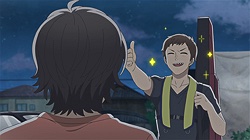 |
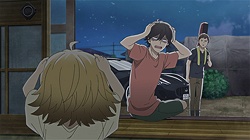 |
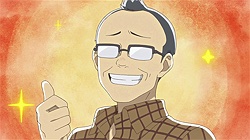 |
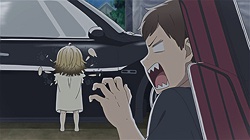 |
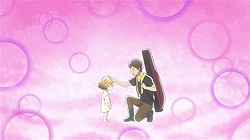 |
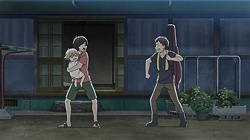 |
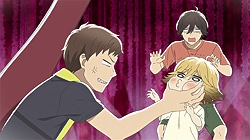 |
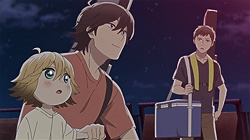 |
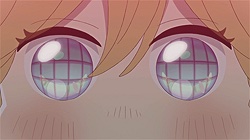 |
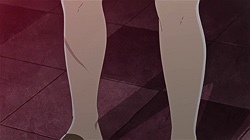 |
 |
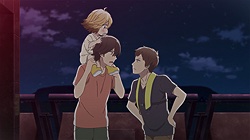 |
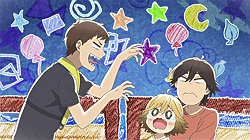 |
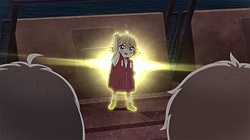 |
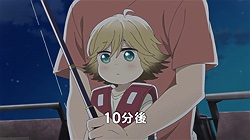 |
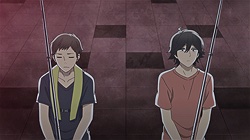 |
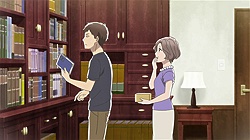 |
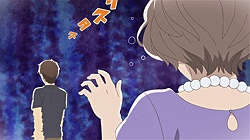 |
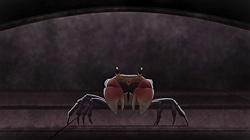 |
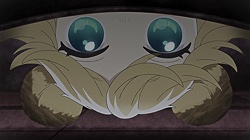 |
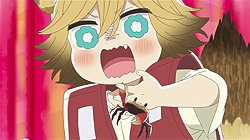 |
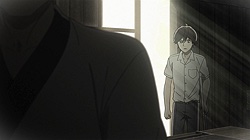 |
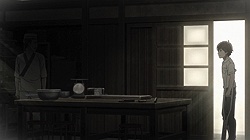 |
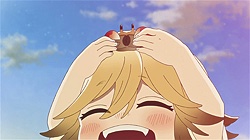 |
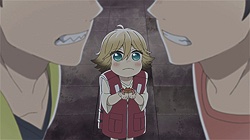 |
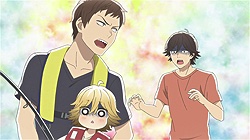 |
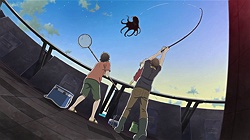 |
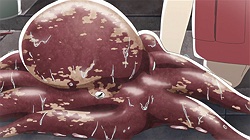 |
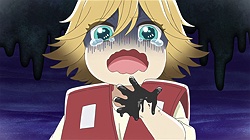 |
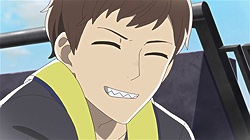 |
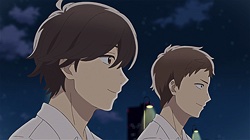 |
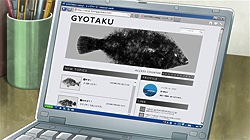 |
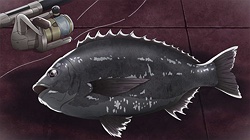 |
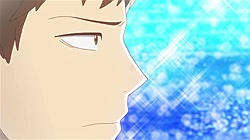 |
 |
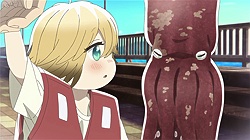 |
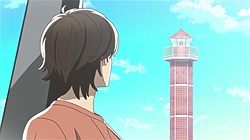 |
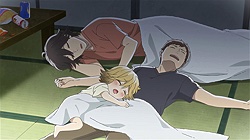 |
 |
「赤灯台」 (Aka Toudai)
“The Red Lighthouse”
We’re three episodes into Udon no Kuni no Kiniro Kemari, and it’s actually been even better than I was expecting. Considering how high my expectations were (though entirely based on gut), that’s pretty impressive. But in truth I don’t think the series has put a foot wrong so far. Maybe the second episode was a skosh (did you know that word comes from the Japanese “sukoshi”?) too heavily weighted towards the kawaii side, but that’s a pretty minor niggle in the face of everything the show has gotten just right.
I have no idea if there’s any autobiography in Udon no Kuni, but it has the feeling of a story written from a very personal place. There’s the literal sense of place of course – Kagawa comes alive here in a way I would think would be difficult for an outsider to achieve. But more than that, it’s a very reflective series. 30 is a powerful age for a lot of people, a time when it’s difficult to reconcile what you see looking backward with what you see looking forward. This is especially true if your life is unsettled of course – and society’s definition of “settled” is married with a child or two (or at least one in the plans). That’s not the right path for every person, but it can be hard to tell yourself that in the face of a lifetime of cultural (and parental) pressure.
This episode was built around two themes powerful in the lives of most men – fathers and sons, and best friends. Fathers and sons are difficult, and for both men here that was certainly true. Nakajima has chosen to follow in his father’s footsteps – which means becoming a doctor and staying local. Souta rebelled against his father (it wouldn’t be at all far-fetched is he subconsciously blamed him for the death of his mother) by rejecting the family business (and local accent) and fleeing to Tokyo. Souta’s father is gone now, but while Nakajima’s is not, it’s clear that the two of them don’t see eye-to-eye and probably never did.
As I mentioned last week, it seems to me that the story of Udon no Kuni is ultimately Souta rediscovering his sense of family through returning home and meeting Poko. The most poignant moment of this episode for me came when Souta told Nakajima that now that his father was gone, he hated the idea of his house being empty. More directly, of having “no place to return home to”. This is a common feeling among many Edoites who’ve emigrated from the hinterlands, but what’s striking here is how sad it is that no matter what happens now, Souta will never be able to re-establish that bond with his father. That man is gone, and Souta never realized how much the home he built for his family meant to him while he was still around. No matter what happens from here out, nothing can change that.
Nakajima is an interesting case. He’s the “good boy” in the sense that he stayed home and became a doctor, but his mom still nags him to marry and give her grandchildren. As he notes, for many young men it does seem to come down to an either/or proposition of focusing on career or family, and he’s focused very much on the former. Is that an evasion of his true feelings? To some extent, probably. But what’s clear here is that Nakajima is a pretty lonely guy. The friendship he has with Souta means a lot to him, and I get the feeling he’s never “replaced” Souta in his life. The importance of these kinds of connections can’t be overstated – we don’t choose our family but we do choose our friends – and the absence of them in our lives leaves us something less than complete.
The look on Nakajima’s face as he watches his friend patiently and gently interact with Poko speaks volumes. This is a Souta he never knew – I suspect Souta never knew it existed either until it manifested itself. Nakajmima’s manner with Poko is a bit more rough-edged than I’d prefer, but he’s clearly not immune to the instincts and emotions Poko’s presence stirs in him. A fishing trip is about as classic a male-bonding ritual as one could imagine, especially given that it’s also a memory Souta and Nakajima share of their youth. That’s another thing that can never be recaptured, but clearly Nakajima would very much like to have his friend back on a permanent basis.
What will Souta do now? Well, sentiment aside, it’s not always so easy to go back in life – either practically or psychologically. I do, however, think it’s highly significant that Souta admitted out loud that he actually liked Kagawa – that he’d “forgotten this kind of life existed”. The life hasn’t changed much – that’s the blessing and curse of small-town Japanese existence – but Souta did enough changing himself to make him see that life in a new light. I tend to believe that Souta won’t end up taking over the udon-ya personally, as that seems a little too easy – but it’s certainly a possibility. More likely, I think, is that he finds someone for whom that would be a fulfilling existence, and finds a way to combine the dream he chased to Tokyo with the feelings he rediscovered in Kagawa.
Preview
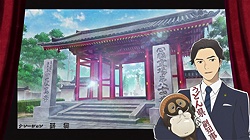 |
 |
 |
Omake
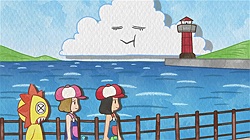 |
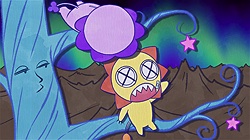 |
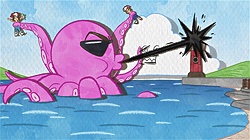 |

This anime feels like the adult side of Non Non Biyori. I feel like the rural setting was used so much more frequently in older anime, rather than modern or generic highschool settings nowadays. It feels very comfortable and im not sure if its more its deliberate construct of that feeling or just personal.
super happy I can watch drifters into this, liking this season’s balance.
Will this anime get a good ending? I can’t see how eventually they won’t have to separate. Even if they stay together he’ll grow old while the tanuki won’t.
Manga is ongoing, so who knows if it’ll get a real ending at all? We’ll see.
I cracked up when he said the lawyer can make anything black white xD I couldn’t.
I was wondering why a country dude would have a mazaratti, definitely the dude’s a doctor (so if we become doctors we have fancy cars?)
I like this show, it gives me a warm kind of feeling where you think of your past regrets and your constant nags of your mother to have u marred (ye, my mum brings me gifts she got from weddings and then sighs and says she wants mine some day), definitely same, and running out when she says that, same!! (no, im not 30)
Nakajima is one of my fave chars now officially, apart from Gintoki (if you get that reference) xD
Cheers!
His dad is an owner of a big local hospital, AND he is working there as a doctor. He is a well-paid kid from already filthy rich family.
I was kidding u know lol but ok
https://randomc.net/image/Udon%20no%20Kuni/Udon%20no%20Kuni%20-%2003%20-%20Large%2012.jpg
This looks adorable. I’ll have to make an effort to catch up.
>Gyotaku
Is that a reference, or is it a legit Japanese fish wiki?
Actually, Gyotaku is a rather strange Japanese art form where “fish prints” are made using ink.
This show speaks to me so much. I’m really enjoying it.